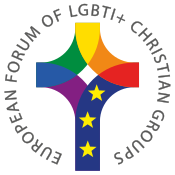This testimony follows from a series of webinars that the European Forum of Christian Groups is promoting until the end of April 2024.
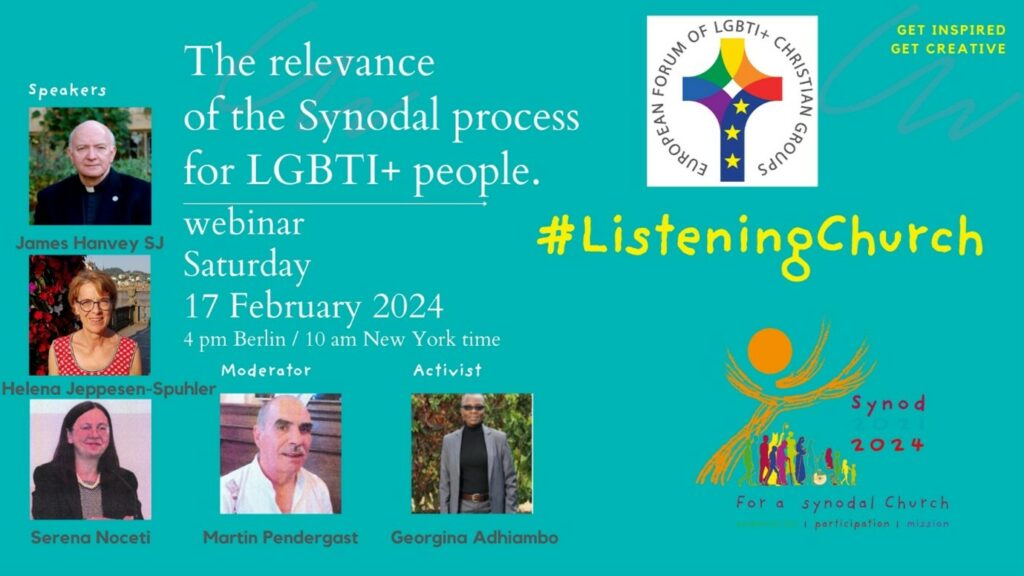
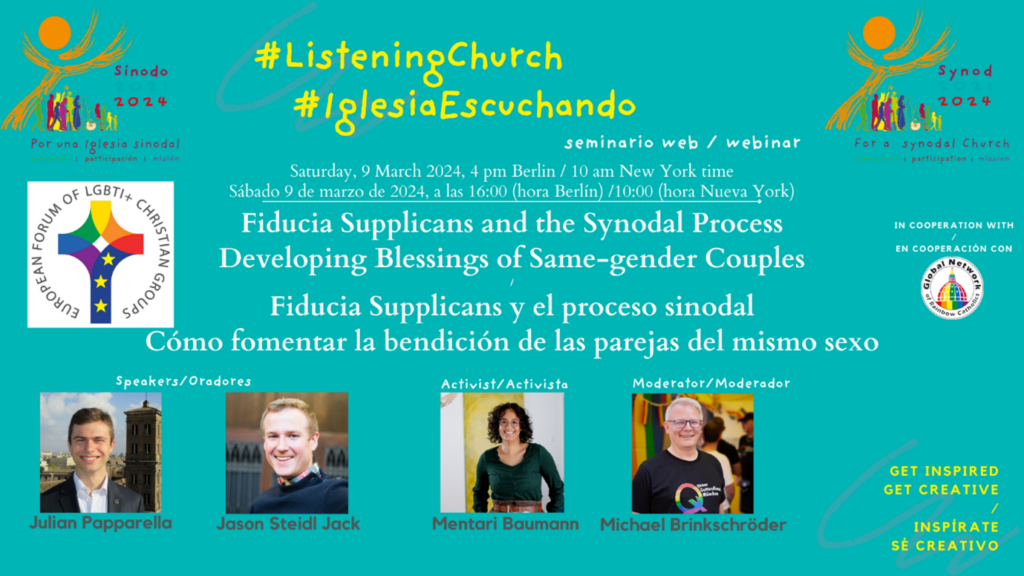
Georgina wondered how to explain the difficulty African bishops have in relating to the LGBTI+ world, Helena welcomed the presence of lay people at the synod in October, Serena emphasised that participation is not just about “be part”, it includes “taking part” and James spoke of co-responsibility and the certainty that “the Spirit will not let us go!”. It all happened at the first webinar organised in February by The European Forum of LGBTI+ Christian Groups
Georgina Adhiambo, a Kenyan, was at Ash Wednesday Mass in her parish. The focus of the homily was the “traditional” family – made up of a father, mother and children – that idyllic image that not even Africa can boast of preserving, see point 16 (q) of the Synthesis Report of the first session of the XVI Assembly of the Synod of Bishops. Georgina wonders how to go to church if at the beginning of Lent she is greeted with words of condemnation towards homosexual Catholics: “Why do the African bishops speak differently?” This answer came later in the conversation… but before that, there was another sharing: “An African Missionary gave a homily in Wales on this subject saying ‘You cannot bless evil'”. In fact, I heard again one of the reasons for this homophobia in Africa (with the exception of South Africa and north african countries): political and economic sponsorship from abroad that uses the LGBT+ community as “cannon fodder” to gain lucrative contracts and power. In fact, the Bishops are defending a neo-colonialism that (literally) costs the lives of their fellow citizens!
In conclusion, she called for more African testimonies to be heard throughout the Church and, in particular, at the next session of the synod assembly so that this reality can be heard.
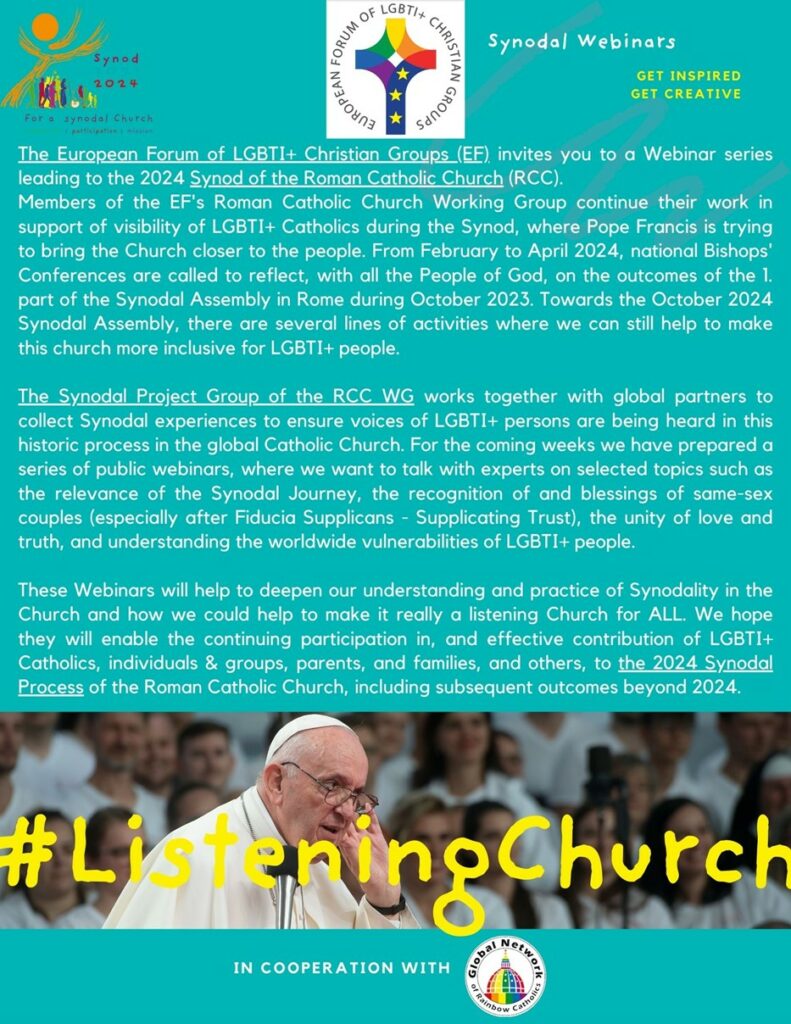
In the other hemisphere is Helena Jeppesen-Spuhler, sent by her Bishop to the Continental (European) Assembly of the Synod of Bishops representing Switzerland. She has been given the task of urgently welcoming the LGBTI+ community into the Church. There she sat at the work table (she was a catechist), with a sister from Iraq and a few bishops; how small she felt – she wasn’t consecrated, nor a theologian, nor did she know how to respond to the Bishop’s question: “If this is the Synod of Bishops, why are there lay people!”? – but she was there as a baptised woman!
When, in Prague, she had the opportunity to meet a group of LGBTI+ Catholics from different parts of Europe, listen to their testimonies and, above all, be close to them! It was the highlight of those (hard) days, where the discussions were courageous. We realised that we truly are a diverse, colourful but united Church. He said: “The participation of the laity in the Synod made a difference: the People of God were represented!”
Serena Noceti, an Italian theology professor, spoke about an inclusive Church in its ministries. She reflected the meaning of participation: on one hand, be part’ from the moment you are baptised, and, on the other, ‘taking part’ as a process that empowers everyone. Already in Paul’s letter to the Ephesians (Eph 4:11-16), I heard this diversity of ministries, no matter who is doing it, which ends with the following: “From him the whole body, joined and held together by every supporting ligament, grows and builds itself up in love, as each part does its work.”. This participation is as a member of a large family sitting at the same table, and not as an invited guest. Conversation in the Spirit also leads us to the movement ‘with’ and ‘towards the other’ (conversationem), which, at such a diverse table, also invites us to listen and let the Spirit speak, no matter from where.
James Hanvey sj, an scottish, has been following the Synod of Bishops on synodality very closely, and it is right there that he has emphasised it: we are at the beginning of a new era, of a new Church, one that lives in Conversation in the Spirit. We are invited to co-responsibility (it reminds me of the Letter to the Romans, where Paul reminds us that we are ‘co-heirs’ of Christ!), through participation from our baptismal reality, as those responsible for Christ’s message in the world. In fact, he reminds us that by virtue of baptism we are guided by the Holy Spirit, that he is our compass. But how can we honour this experience? By learning to listen, by learning to be Catholic (moving from the usual local dimension to the wider experience of the world), by training the ability to recognise Him when we listen to others, and this is Conversation in the Spirit. Confident, we know that the Spirit makes us restless, guides us and will lead us according to his agenda. The challenge of the synodal process is great and it will be a long process.
He ended his speech by saying with confidence: “The Spirit will not let us go!”
Ana de Carvalho, february 2024
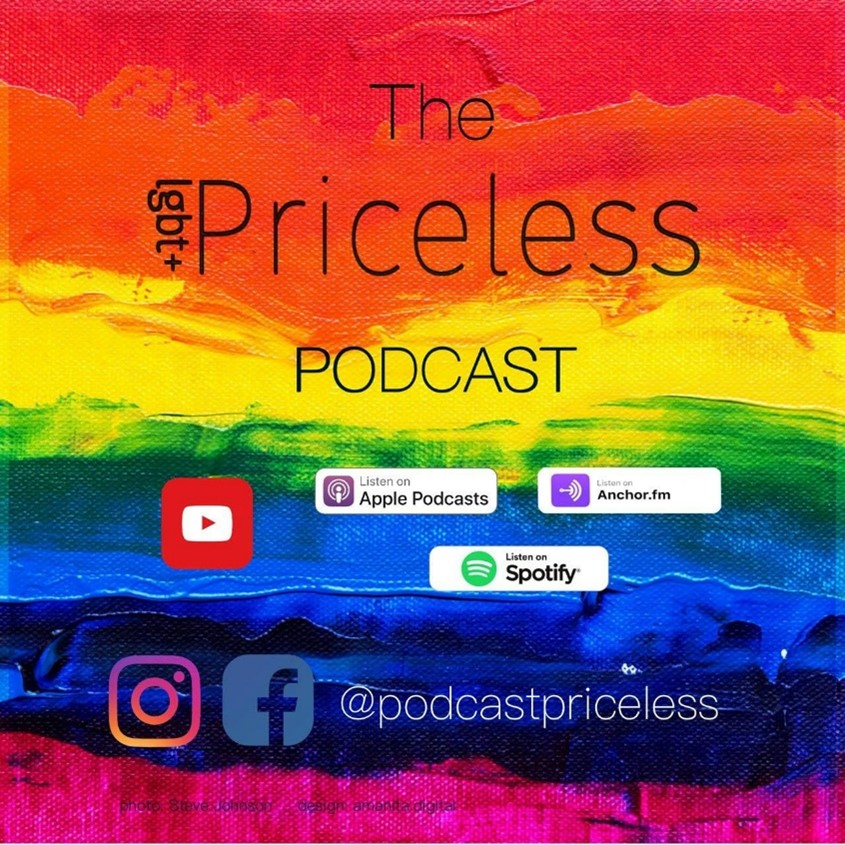
You can hear recordings of the webinars in the Priceless PODCAST.
